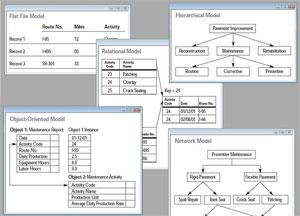Having recently written about artificially inflating your resume, I was amused to come across an open letter on SQLServerPedia to anyone who has the temerity to include SQL on their resume. Below are some of author Jen McCown's tips.
Data Types are Important
If you have touched SQL Server enough to warrant a line on page 1 of your resume, you need to know some of the extreme basics, such as data types. Data types are the fundamental building blocks of databases, so take a few minutes to familiarize yourself with a few:
- char and varchar are slightly different. char is a fixed-length string type; varchar is a variable-length string type. However many characters you declare your char field or variable to have, that’s how many it will have. Set a char(4) equal to ‘a’, and the string will actually by ‘a ‘. (Note their comparable Unicode types, nchar and nvarchar.)
- There are several different date and time types, each of which have a different precision and date range.
- Briefly familiarize yourself with the integer data types (part of the family of exact numerics, which also includes decimal and others).
SP_ means System Stored Procedure – Don’t use it
Don’t begin your stored procedures with sp_. In addition to the reasons listed behind the link, a stored procedure whose name begins with sp_ will cause SQL Server to look in the masterdatabase for the SP, before it looks in the current database. That’s what we call a performance hit. And certainly, don’t be like this guy.Database Objects are Important
Again, if your work with SQL Server warrants a page 1 bullet, it’d be an awfully good idea to know of a few database objects.
- Tables contain rows of data. Each column in a row has a name and a type.
- Indexes make tables more quickly searchable (for reads). Indexes come at a cost to writes (inserts and updates).
- Stored Procedures are saved in the database. They can accept input parameters, contain one or more statments, and return a value. Stored procedures can be called manually, or from applications or scheduled jobs.
- Triggers are similar to stored procedures, but they are event-driven: they are defined to execute when a specific event (such as an insert on a table) occurs.
If you have SQL on your resume be ready, know your stuff, and you'll do just fine in the application and interview process. Image: Php2s.com


